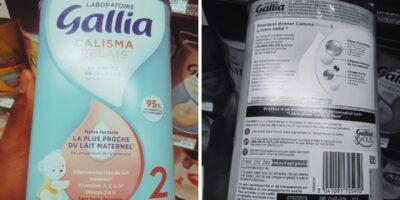“Most of the medicines we use come from abroad, and we do not have a large storage capacity,” explains Rommel Cajuste to AyiboPost
Two people suffering from mental disorders, whose health condition worsened due to medicine shortage, were the victims of violence in 2024.
These two cases, reported by psychiatrist Dimitri Thadal to AyiboPost, involved two of his patients.
The first, who lived down town, near the Petit Séminaire Collège Saint-Martial, saw his condition deteriorate due to the lack of suitable medication, leaving him no control over himself and leading him to wander the streets.
A week later, his family learned he had been killed.
The other person, residing in Musseau, was saved at the last minute from armed individuals in December 2024, thanks to a person who recognized them as suffering from mental disorders.
Unable to identify herself, she had already received a machete blow to the head.
According to the psychiatrist, these two cases illustrate the impact of the shortage of medications in pharmacies in Haiti, compromising the situation for the most vulnerable people.
These cases are not isolated.
In an interview granted to AyiboPost in May 2024, Max-Weber Victor, psychiatrist at the Mars and Kline psychiatric center for 15 years, explained to AyiboPost that people suffering from mental disorders, found in the streets, are frequently victims during major waves of violence in Port-au-Prince. The manager explained that “unfortunately, these cases are not recorded.”
The context of violence in Haiti, the roadblocks, as well as the closure of airports and ports have seriously affected the Haitian health system, particularly the pharmaceutical sector.
This crisis intensified after gangs set fire to more than 20 pharmacies down town in March 2024.
An article by AyiboPost published in May 2024 discussed the difficulties for certain cancer patients in obtaining essential medicines.
Read also: Essential medicines are missing in Haiti
Since then, the range of medicines and other health supplies available has continued to shrink, according to three officials contacted by AyiboPost.
Hospitals are finding it increasingly difficult to obtain supplies due to significant delays in the delivery of many essential products.
The context of violence in Haiti, the roadblocks, as well as the closure of airports and ports have seriously affected the Haitian health system, particularly the pharmaceutical sector.
This is the case of the Saint-Damien hospital, one of the main hospitals in the metropolitan area of Port-au-Prince located in Tabarre.
For the month of November 2024, this hospital only received 43% of orders placed with its suppliers, according to Rommel Cajuste, pharmacist and head of department at the hospital center.
This figure was slightly higher in October, reaching around 47%.
“The majority of the medicines we use come from abroad, and we do not have a large storage capacity,” Rommel Cajuste explains to AyiboPost.
The pharmacist emphasizes that each time the security situation deteriorates, the supply of medicines is immediately affected.
“When ports and airports are closed, our suppliers, who typically order medicines once a month, are unable to meet demand,” he adds.
Local laboratories, struggling to import the raw materials needed to manufacture drugs, have been forced to reduce their production.
Medical analysis laboratories are also affected, facing a shortage of essential inputs to carry out diagnoses.
This increased unavailability of medications takes place in a context of gang violence where dozens of hospitals in Port-au-Prince are forced to close their doors.
National security forces and a multinational force on the ground were unable to prevent attacks on health facilities, including the Bernard Mevs Hospital in December 2024.
On December 24, 2024, the reopening of the State University of Haiti (HUEH) hospital announced by the authorities turned into a tragedy.
Read also: General Hospital: a vague reopening in an alarming health crisis
The gangs attacked the institution and killed three people, including a police officer and two journalists.
The largest hospital in the country, HUEH has been closed since February 2024.
The crisis in the Haitian health system persists.
According to Rommel Cajuste, essential laboratory inputs, such as urine tests, are lacking in the local market.
Replenishment tests from abroad such as haemoglobin, renal, lipid or liver tests, or blood gas tests, have become difficult to carry out, according to the manager.
Faced with this observation, he said, health personnel prioritize the most urgent cases to diagnose, “which risks affecting the quality of care.”
Pharmaceutical laboratories and wholesalers in Port-au-Prince have closed.
The majority of the medicines we use come from abroad, and we do not have a large storage capacity
This is the case of the Farmatrix laboratory, according to a manager of the institution contacted by AyiboPost.
Farmatrix has specialized in the local production of pharmaceutical products for over 30 years.
The unavailability of medicines has disastrous consequences for patients in vulnerable conditions, such as those suffering from mental disorders.
As an alternative, says Dr. Thadal, mental health professionals prescribe older compounds to their patients to compensate for the scarcity of appropriate medications.
“These drugs, generally used less frequently, cause many more side effects on patients and are also starting to be out of stock,” doctor Thadal informs AyiboPost.
The closure of the Mars and Kline center, the only public psychiatric center, in March 2024, forced certain families to take care of their sick loved ones at home, often at the cost of great difficulties, in particular to ensure the administration of treatments.
The shortage is leading to an increase in the prices of the few drugs still available.
For example, explains Thadal, “a small box of 30 units of paroxetine goes for 10,000 gourdes in Pétion-Ville.”
Paroxetine is commonly used to treat various psychiatric disorders by increasing levels of serotonin in the brain, a chemical that plays a key role in regulating mood.
“Families in financial difficulties cannot obtain these medications for their sick loved ones,” regrets the doctor.
Faced with multiple blockages linked in particular to the closure of supply chains in Haiti, some entrepreneurs are turning to the Dominican Republic.
However the toll stations installed by armed bandits on national roads impact the prices of products.
Furthermore, Thadal raises concerns about the quality of these drugs imported from the Dominican Republic which are of “lower quality”.
This situation is of concern to officials, given that Haiti does not have any national drug quality control laboratories.
The shortage threatens the treatment of children living with HIV.
Some essential medicines are unavailable.
This is, for example, the case of Dolutegravir 10 mg. An antiretroviral used in the treatment of children living with HIV, according to Pierre Hugues Saint-Jean, president of the Association of Pharmacists of Haiti.
Medicines such as Valproic Acid sp, Co Carbamazepine sp and Diazepam Injection, mainly intended for patients with seizure disorders, are rare, according to pharmacist Rommel Cajuste.
The shortage threatens the treatment of children living with HIV.
Likewise, essential treatments like antibiotics, painkillers, anticancer drugs, or antihypertensives, especially those needed for emergencies related to high blood pressure, as well as sutures used in surgery, are also in short supply.
According to Pierre Hugues Saint-Jean, president of the Association of Pharmacists of Haiti, this shortage seriously threatens public health, increasing the risk of complications and mortality.
According to the manager, this medication crisis could reduce access to care, aggravate chronic pathologies due to a lack of available treatments, and lead to psychological impacts on the population.
Routine health care, such as preventive consultations, vaccinations, regular treatments and monitoring of chronic diseases, could be disrupted, he explains, “because patients do not receive their medications as usual and health structures cannot function effectively.
Families in financial difficulty cannot obtain these medications for their sick loved ones.
According to the health professional, repeated shortages and disruptions in supply could also affect the population’s confidence in the health system.
This can, in the long run, “lead to a reluctance to seek care and an increase in self-medicating behavior,” he concludes.
By Fenel Pélissier & Rolph Louis-Jeune
Cover image: « A man sitting with his doctor | ©Freepik
► AyiboPost is dedicated to providing accurate information. If you notice any mistake or error, please inform us at the following address : hey@ayibopost.com
Keep in touch with AyiboPost via:
► Our Channel Telegram : Click here
► Our Channel WhatsApp : Click here
► Our Community WhatsApp : Click here







Comments